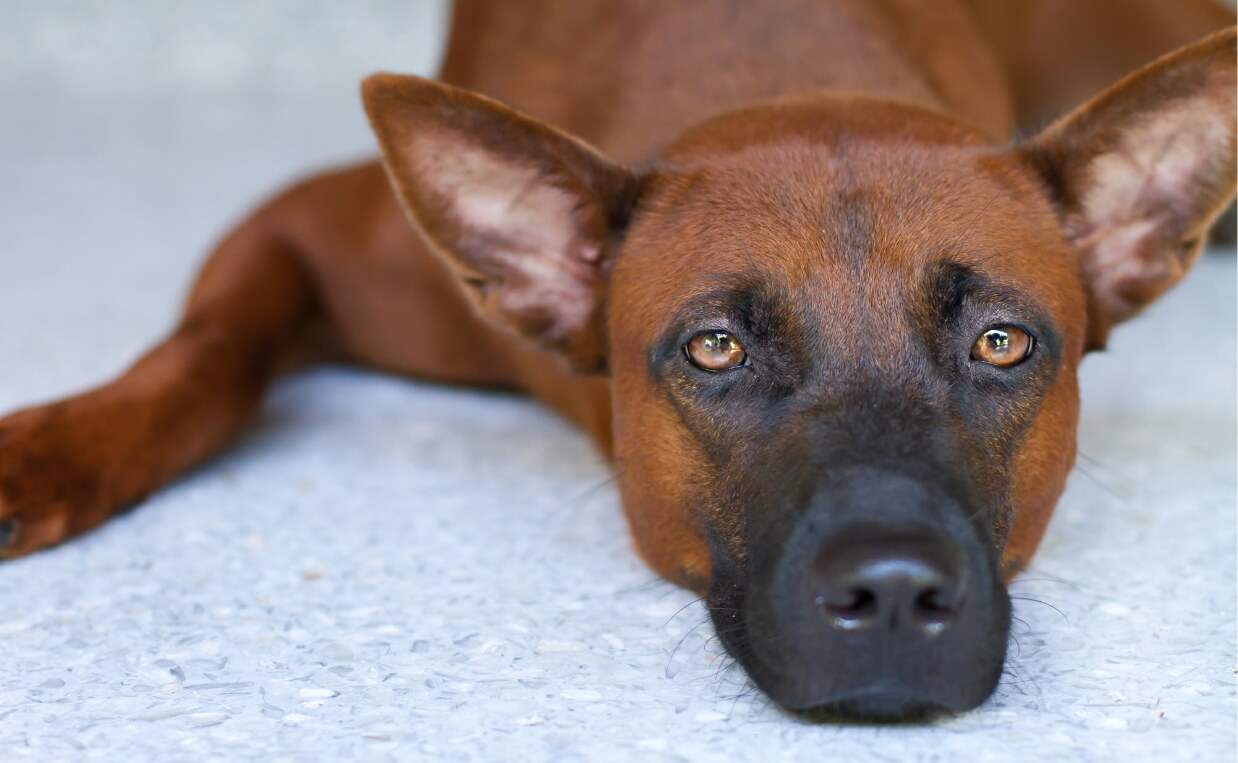
After illness or surgery, your dog will need special care. Your dog will need to rest and relax more than usual and may need to eat a special diet. Dogs who do not receive adequate care after a surgery or illness may take longer to recover.
No matter what illness your dog has been through, they deserve all the tender loving care (TLC) you can provide to get back to a healthy, active life.
When your dog has had surgery, you will receive discharge instructions on how to care for your dog. Be sure to read the instructions carefully and ask your veterinarian any questions you might not be clear about.
Here are some tips to help your dog recover from a serious illness or surgery.
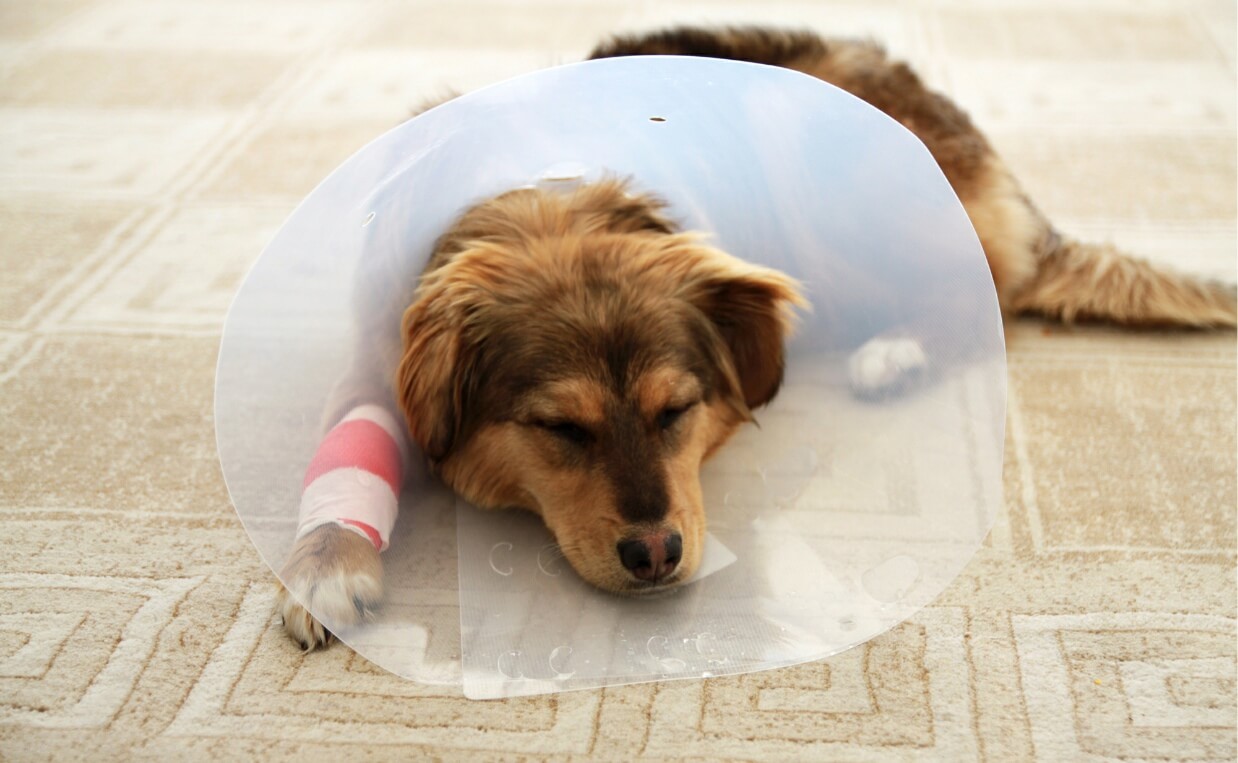
Help Your Dog Recover with Rest
Whether your dog is recovering from an illness or surgical procedure, he or she will need plenty of rest. Make sure your dog has a quiet, comfortable place to rest, away from the hustle and bustle of everyday life. Playing soft music can help soothe your dog and drown out background noise.
Sometimes after a major surgery your dog may need to be confined to a crate. This is especially important if you can’t supervise or need to leave your dog alone. It doesn’t have to be a crate if your dog hates being crated – it can be a small room, playpen or an area protected by baby gates.
Help Your Dog Recover with Nutrition
Nutrition is important when it comes to helping your dog recover from an illness or surgery. During recovery your dog’s body will need food high in energy, easily digestible, and extra-rich in essential fats, proteins, vitamins and minerals.
Foods high in protein are a good way to get your dog eating after an illness or surgery. If their appetite is suppressed, they may need something extra delicious to get them eating again.
Read more: 10 Foods to Feed Your Dog When Sick with an Upset Stomach
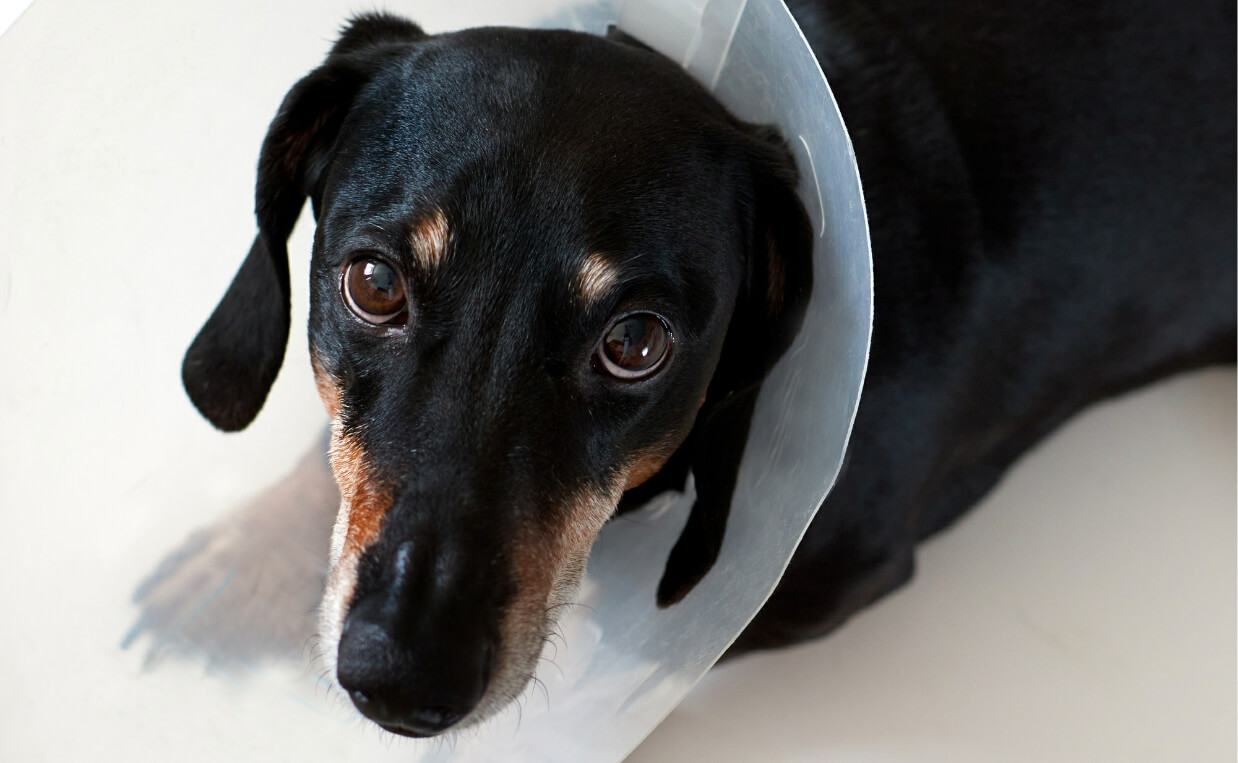
Help Your Dog Recover with Physical Therapy
Physical therapy may include the application of heat or cold, assisting your dog to move the affected area through range of motion, and massage of the affected area. Your veterinarian will provide you with instructions on how often to apply heat or cold and how to massage your dog’s affected area (usually a limb). Your goal is to restore normal range of motion, prevent loss of muscle mass, rebuild the muscle mass and help return the affected limb to normal function.
Monitor Your Dog’s Progress to Help with Recovery
A major factor in your dog’s recovery is your willingness to watch over your dog.
- Monitor your dog’s bathroom routine. Sometimes anesthesia can affect your dog’s digestive tract. Make sure you are familiar with changes your veterinarian expects your dog might experience.
- Watch for side effects from any medications your veterinarian has prescribed. If you notice anything out of the ordinary or concerning, be sure to contact your veterinarian’s office immediately.
- Follow your veterinarian’s instructions for checking your dog’s wounds. You will want to watch for infection or postoperative complications.
- Is your dog drinking enough water or experiencing excessive thirst? It’s not uncommon for dog’s to be very thirsty after surgery, which can be a reaction to the anesthesia. Still, you should let your veterinarian know if you’re concerned so your vet can follow up with tests to ensure your dog doesn’t experience kidney failure or another health issue. Unflavored Pedialyte offers your dog electrolytes he or she may have lost from vomiting. If your dog is very weak you may need to give the Pedialyte through a feeding syringe.
Read more: 7 Creative Ways to Keep Your Dog Hydrated
- Is your dog lethargic or lacking energy after the length of time he or she should be regaining energy? Be sure to let your veterinarian know if your dog doesn’t seem to be healing in the amount of time he or she should be.
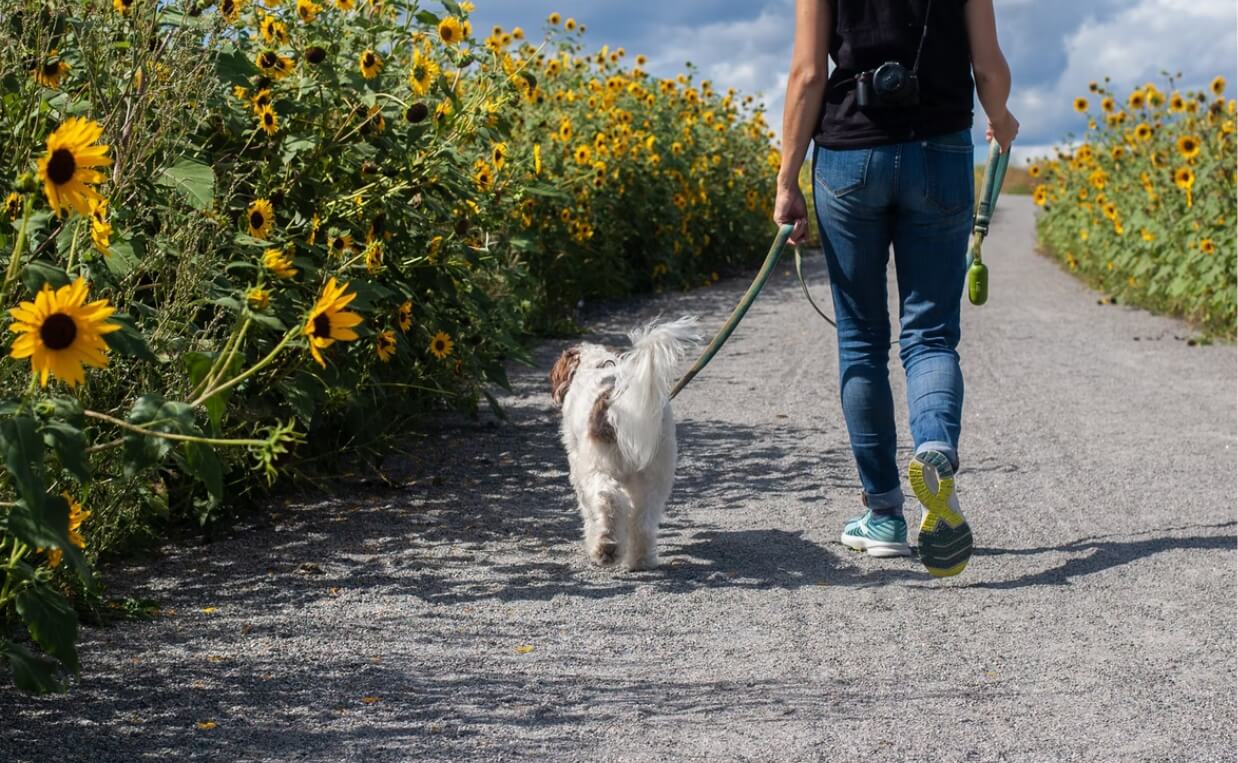
Help Your Dog Recover with Exercise
Sometimes gentle exercise can be an important part of your dog’s recovery.
Light exercise can make a sick dog feel better, especially if your dog is usually very active. Just be careful to take it easy; overexertion can worsen your dog’s condition.
Once you have received the go-ahead from your veterinarian, it’s time to give your dog the confidence he or she can return to his or her normal routine. Be patient throughout this process as it can take some time.
Walking is a great way for you to help your dog with the healing process. Going for short walks twice a day, perhaps to his or her favorite place, will have a positive effect on his or her spirit and build physical strength as well.
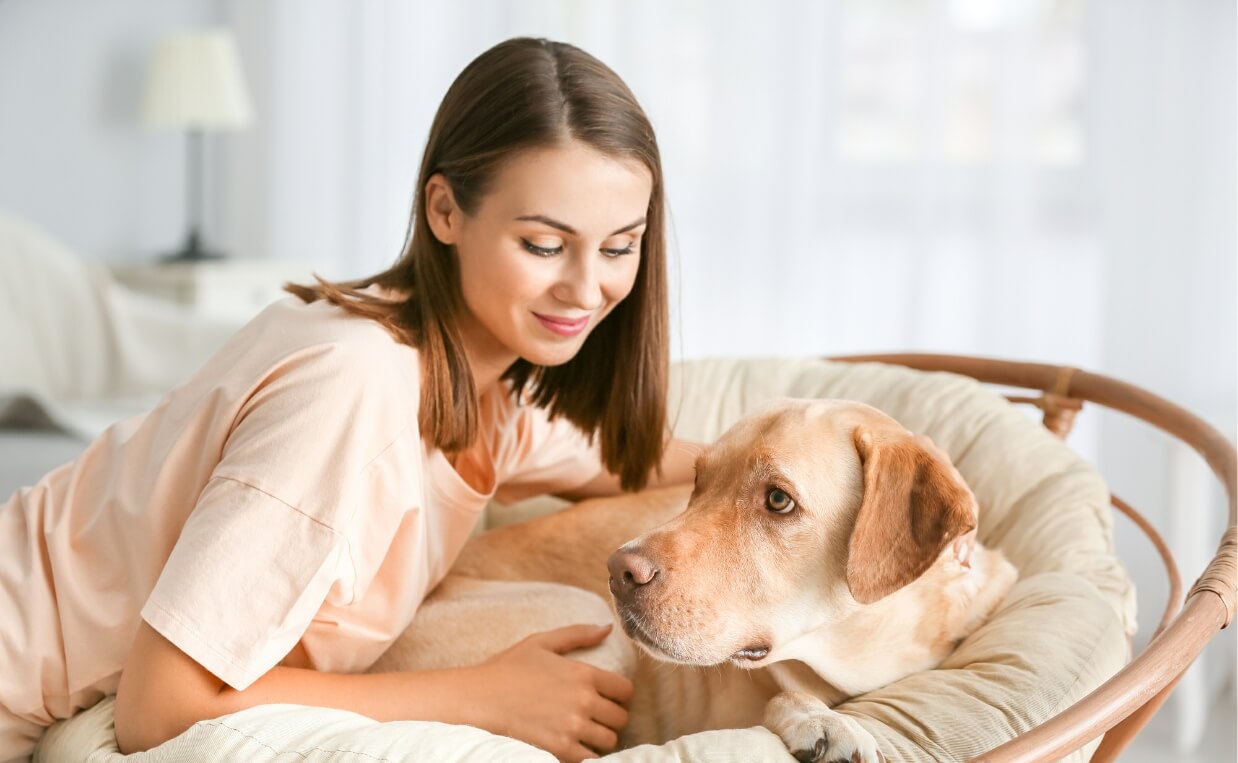
Final Thoughts
Dogs have an amazing internal compass. Most of the time you can follow his or her lead on whether it’s time to take the next step in the recovery process. However, some dogs want to be too active too soon, so you may have to limit activity levels until your veterinarian gives you the green light to move ahead.
Dogs don’t understand they are in recovery and often become frustrated at the reduced level of activity, the itchiness of their incision site (if they had one) and overall lack of stimulation after surgery or illness, so it’s important you give your dog loving reassurance and attention. Simply taking some time out of your busy day to sit quietly with your pup, stroking his or her fur and chatting with him or her calmly can help your dog relax and feel loved.
It’s very important you stay in contact with your veterinarian if you have any questions or concerns about your dog’s recovery after an illness or surgery. Be sure to take your dog to all follow up appointments and call your vet’s office if you notice any signs or symptoms indicating your dog might not be healing correctly.
We all want our dogs to recover as quickly as possible. Some dogs will take longer than others depending on their pain tolerance and age. Just like humans, senior dogs may have a harder time recovering than younger dogs. Have patience and remember your dog needs lots of TLC!
Have you nursed a recovering dog back to health after a serious illness or surgery? What recovery tips do you think should be included in this list? Please comment below…

 Is Nutmeg Safe for Dogs to Eat?
Is Nutmeg Safe for Dogs to Eat? Top 6 Reasons to Spay or Neuter Your Dog
Top 6 Reasons to Spay or Neuter Your Dog 5 Reasons Your Dog Has Bad Breath
5 Reasons Your Dog Has Bad Breath Understanding and Treating Dog Eye Infections
Understanding and Treating Dog Eye Infections Why Routine Dog Dental Care Includes Vaccinations
Why Routine Dog Dental Care Includes Vaccinations






It makes sense that your dog would need plenty of rest after surgery. I need to take my dog in to get fixed soon. I’ll have to make sure he gets rest and ask the vet what else I can do to help him recover.
That sounds like a good plan. Thanks for stopping by the Canine Campus blog!